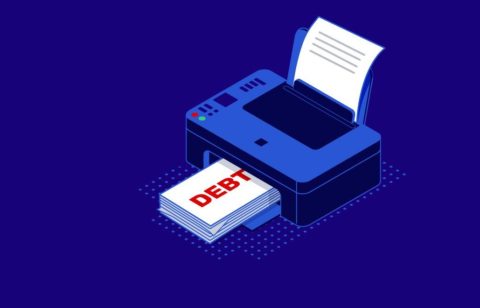There’s a new scam to watch out for called the emergency scam. The way it works is that a friend or relative contacts you and explains that he/she is stuck somewhere (usually some place abroad, has been robbed of all of his/her credit cards and cash and needs you to send money to help him/her get home.. What makes this seem legitimate is that the email will actually come from your friend’s or relative’s real email address because the email account has been hacked. The BBB (Better Business Bureau) advises people to never wire money to anyone in less you actually talk to the person and find out that the emergency is real.
Loan consolidation
People who are having a serious problem with debt often turn to personal loan consolidation as a solution. This can be a quick and easy way to cope with debt. If you can borrow enough money from your bank, credit union or an online lender to pay off all your debts, you’ll be able to forget all those multiple payments you’re making now as you’ll have to write only one check a month. Plus, you should have a much lower payment than the total amount of the payments you’re currently making.
There are several problems or negatives with personal loan consolidation. First and foremost, you may not be able to get a loan large enough to pay off all of your debts from a conventional lender. This means you may have to turn to an online company, which is where you could run into a scam.
The way the scam works
Let’s say that you click on a Google listing that promises fast, easy loan consolidation. You trade emails with the company and everything sounds ideal. It promises to consolidate your personal loans and credit card debt and then all you’ll have to do is send it one low payment a month. This sounds great. You sign up for the plan and begin sending payments to the company.
You continue to get threatening phone calls
Your credit card providers and personal loan companies continue to call you and demand payments. You explain that you have consolidated your debts and that they should be receiving payment in full any time. But the calls keep coming/ After several months you begin to suspect that something is wrong and contact the debt consolidation company. You get what’s called the old “runaround,” with vague promises that the payments are on their way to your creditors. It starts to dawn on you that you’ve been scammed. You’ve paid money to the loan consolidation company and it has just kept it. You try to contact the company and it no longer answers your emails or calls. Worse yet, you find you can’t even sue it because its corporate headquarters is not in the US. You realize with a sinking feeling that you still owe on those personal loans and credit cards, plus you’ve lost all the money you sent to the loan consolidation company.
Look before you leap
It’s important that you check out any loan consolidation company very carefully before you sign up with it. In fact, a good rule of thumb is that the better the promises sound, the more likely it is that the company is out to scam you. Be sure you get everything in writing and check out the consolidation company with the Better Business. A legitimate personal loan consolidation company will have a good rating with the BBB and membership in associations such as the International Association of Professional Debt Arbitrators (IAPDA) and The US Chamber of Commerce, and will be certified by the American Association for Debt Resolution (AADR).
National Debt Relief belongs to both the IAPDA and the US Chamber of Commerce, and is AADR Certified. We have helped more than 100,000 American families consolidate their debts, save money and become debt free. Contact us today for more details about our debt settlement program and how it could help you.





